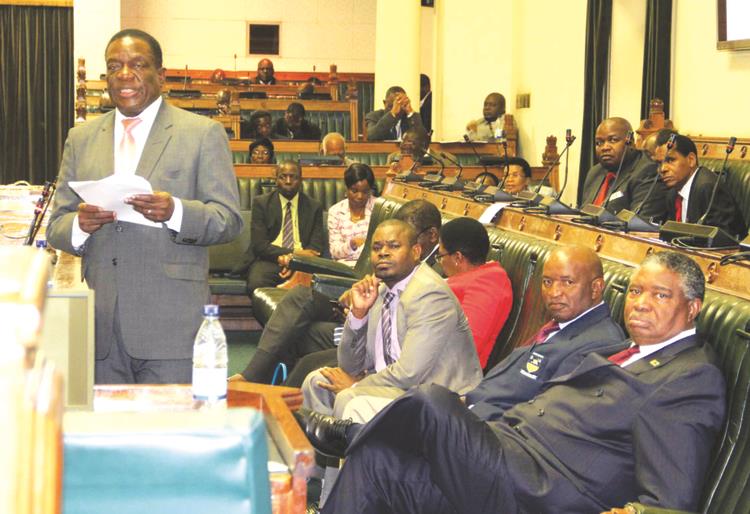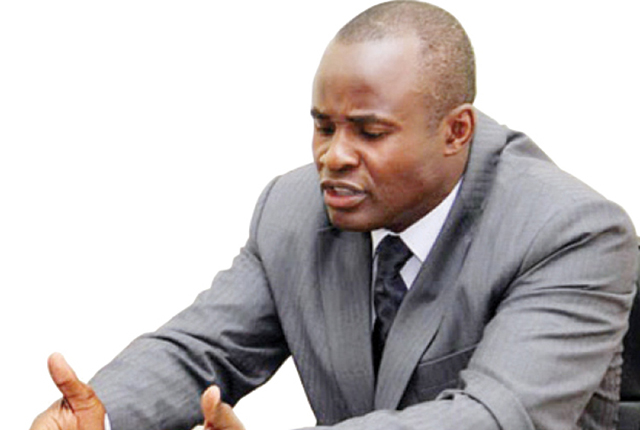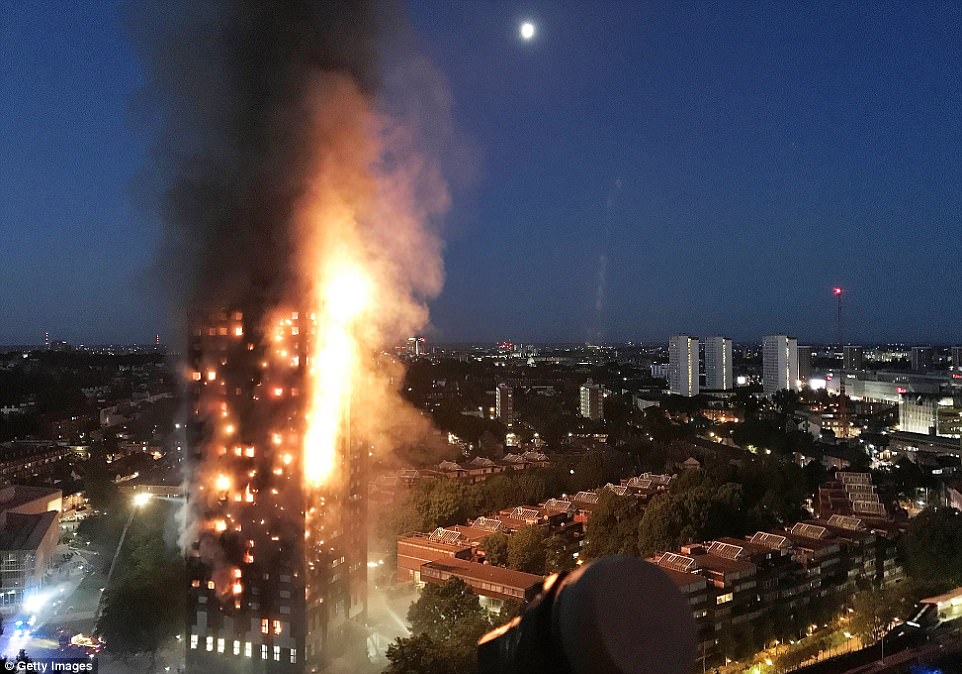ED defends Constitutional Bill


Vice President Emmerson Mnangagwa makes a point during debate on the Constitutional Amendment Bill, while Vice President Phelekezela Mphoko follows proceedings in the National Assembly yesterday. – (Picture by Tawanda Mudimu)
Zvamaida Murwira Senior Reporter—
VICE President Emmerson Mnangagwa yesterday said the Constitutional Amendment Bill (No. 1) was a Government-initiated process and not a self-serving endeavour. He said the Constitutional Amendment Bill will be executed in a balanced manner and regardless of political persuasion. VP Mnangagwa said as the Minister responsible for Justice, Legal and Parliamentary Affairs he had the mandate to make such proposals according to people’s wishes.
He said this in the National Assembly in response to allegations from MDC-T lawmakers Mr Innocent Gonese (Mutare Central) and Mr Prince Sibanda (Binga North) that the Bill was motivated by personal benefit during its Second Reading stage.
“It is my firm belief and conviction that those who entertain such notions are not only mischievous and self-destructive, to say the least, but dangerous, not only to our constitutional democracy, but to themselves. It must be clear to them that I, as the minister to whom the Justice, Legal and Parliamentary Affairs portfolio was assigned, have the unfettered mandate to propose amendments according to the people’s wishes, the law, and procedures available for the peace, order and good governance of the motherland,” said VP Mnangagwa.
He said the Constitution did not prescribe a timeframe or limits within which proposals for amendments could be tabled before Parliament after its adoption in 2013.
VP Mnangagwa was responding to claims from MDC-MPs that it was too early to move for amendments barely four years after adoption of the Con- stitution.
He said the only direction given by the Constitution regarded the procedure that must be followed when amending the Constitution, which included a referendum in respect of the Declaration of Rights and a two thirds majority in both the National Assembly and Senate.
“This is what we refer to as entrenchments. These entrenchments also apply to provisions relating to the amendment of term limits provisions and Section 328 itself as prescribed by Section 328 (7) and (9), respectively. Section 328 (9) restricts the amendment of Section 328 itself in case someone wants to amend the amendment clause first before attempting to amend other provisions,” said VP Mnangagwa.
He gave an example of South Africa which he said amended its constitution barely seven months after its adoption in August 1997 by the then inaugural president, Mr Nelson Mandela.
“In fact, if the constitution is to endure, it must be able to respond to changing needs and circumstances. Some amendments are made for the public interest; or to adjust the constitution to the environment within which the political system operates, including economics, technology, international relations, demographics and values,” he said.
VP Mnangagwa said the Bill was not partisan.
Regarding media reports that the Bill did not get support from some Cabinet members, VP Mnangagwa said disagreements were part of the country’s deep- seated democratic principles.
He said what was important was that Cabinet had a collective responsibility and the views of the majority took precedence and those in the minority would be bound by the decision of majority lest one should resign.
“The fact that we have not seen any resignation arising from the successful endorsement of this Bill by Cabinet is eloquent testimony that the Bill has full backing of Government and the final arbiters, the people, through their elected representatives who will have the final say on the Bill,” said VP Mnangagwa.
Meanwhile, the National Peace and Reconciliation Commission Bill was read for the second time.
Vice President Phelekezela Mphoko steered the Bill.
After moving the Bill, VP Mphoko was ruled out of order by Acting Speaker of the National Assembly Cde Reuben Marumahoko after he sought to introduce a different subject before he adjourned the motion on the Bill.
This was after VP Mphoko had asked for “a favour” to talk about a different issue – corruption.
VP Mphoko wanted to talk about corruption but was ruled out of order.









Comments